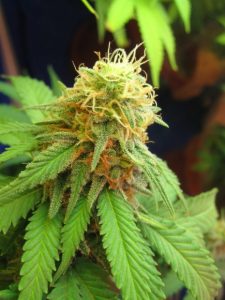Cannabis Cultivators Scouring Legal Ways to Grow
Farmers in San Diego County have worked the fields in the rural/ residential spans of this region for decades – sometimes for generations. They grow tomatoes, avocados and lettuce. They want to continue to farm. But as The San Diego Union Tribune notes, they are looking to expand their yield. 
Specifically, they want to start growing marijuana and hemp. They already have the land. They have the skill. They have most of the tools. They argue the best people to grow and cultivate legal marijuana are the people whose families have been farming the region for the better part of the last century.
Unfortunately, their hopes are counter to what the county’s Board of Supervisors may have in mind. The county is looking to possibly outlaw local marijuana cultivation, or else leave it solely up to licensed medical marijuana dispensaries. Both of these approaches cut independent farmers out of this equation entirely. Continue reading
 Cannabis Law Group's Medical Marijuana Legal Blog
Cannabis Law Group's Medical Marijuana Legal Blog













